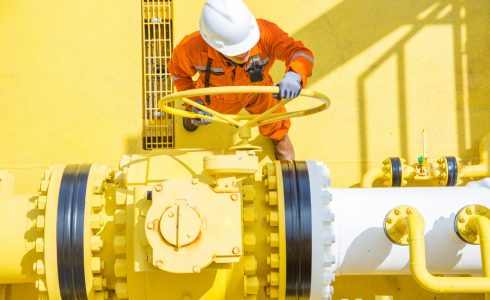Compressed natural gas (CNG) which is one of the forms of natural gas is one of the cleanest fuels having less pollution ratio than liquid fuels and does not contaminate groundwater. Global warming or climate change which is experienced worldwide has brought about a gigantic mission for the utilization of gaseous petrol attributable to the information on the way that discharges from its burning are a lot lower than those from coal or oil subsequently the need for this investigation.
Course Overview


Learning Outcome
Upon completion of this course, participants will be able to:
- Understand natural gas, its composition, and behavior
- Understand forms of natural gas
- List and portray the actual properties and wellbeing perils of natural gas
- Understanding of compacted natural gas
- Describe the circumstances and end results of gas quality in a CNG fueling station
- Understand the explanations behind and parts of the CNG Fueling Station Operation and Maintenance contract
- List the most habitually required extra parts for keeping a CNG filling station
- List the most well-known determinations needed in an outsider CNG Fueling Station Maintenance Contract
- Describe the need for an Emergency Fueling Plan
- Be acquainted with the most well-known CNG filling station investigating methods
- Describe the major CNG powering station parts and support rehearses for each
- Describe government wellbeing guidelines for CNG fueling stations
- Describe the overall security issues related to CNG filling stations and how to relieve hazard with each
- List security strategies and safeguards required while keeping up CNG fueling stations
- Understand the vital segments of and how to direct a CNG filling office security assessment
- Understand the waste following necessities for a CNG filling station, including Hazardous Waste
- Understand the components of a HAZOP plan as they identify with a CNG fueling station
- Description of natural gas
- Natural-gas processing
- Forms of natural gas; the difference between Compressed natural gas and LNG (liquefied natural gas)
- Health Hazards of Natural Gas
- Gas Quality
- Introduction to Compressed Natural Gas
- The Operation and Maintenance Plan
- Major Fueling Station Components and Maintenance Practices
- Safety Procedures and Guidelines
- NGV Facility Safety
- Filtration
- Waste Tracking and Disposal
- Tube Fitting Installation
- Gas processing systems
- Physical properties of hydrocarbons
- Terminology and nomenclature
- Qualitative phase behavior
- Vapor-liquid equilibrium
- Water-hydrocarbon phase behavior hydrates, etc.
- Basic thermodynamics and application of energy balances
- Process control and instrumentation
- Relief and flare systems
- Fluid hydraulics; two-phase flow
- Separation equipment
- Heat transfer equipment
- Pumps
- Compressors and drivers
- Refrigeration in gas conditioning and NGL extraction facilities
- Fractionation
- Glycol dehydration; TEG
- Adsorption dehydration and hydrocarbon removal
- Gas treating and sulfur recovery
3 days
Target Audience:
CNG fueling station maintenance technicians, Fleet managers/supervisors responsible for CNG stations, Fleet management procedures specialists, CNG fueling station owners who contract maintenance to a third party, Field and maintenance foremen and superintendents, Facilities and production engineering technicians, New facilities engineers
Registration
Fill in the details











